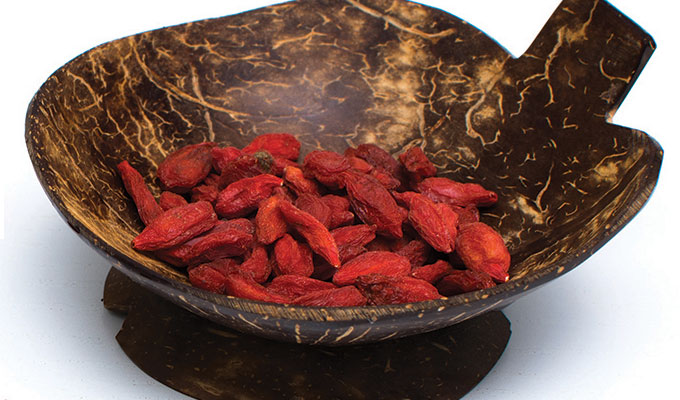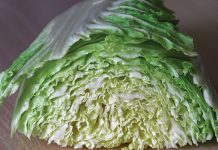Otherwise known as Wolfberry or Lycium Barbarum, the Goji berry is native to Asia, and has been used as a foodstuff and medicine by the Chinese for thousands of years. Only recently has it made its debut in Western markets and exploded in popularity, rebranded by millennials as a “superfood”.
In China, the berry is known as “gou qi” (枸杞) and is commonly found steeped in hot water, mashed into pastries or floating about in Hot Pot soup. Most important, however, is the role it plays as medicine.
Health
Due to its “neutral nature”, Goji can be used by those suffering from either a Yin or Yang deficiency. According to Traditional Chinese Medicine, it is particularly helpful in assisting with liver and kidney function.
The Goji berry’s status as a superfood comes from its hyped abilities to:
- Significantly inhibit the generation and spread of cancer cells
- Improve eyesight
- Tremendously increase the reserves of muscle glycogen and liver glycogen, boosting energy levels with anti-fatigue properties
- Improve brain function and enhance learning and memory capabilities
- Boost the body’s adaptive defences, thus enhancing the ability to endure various noxious stimuli, such as hypoxia, cold and blood loss
- Enhance the body’s hematopoietic function by promoting the proliferation of hematopoietic cell and increasing white blood cell count
- Intensify various organs’ functions, improve brain function, resist free radicals as an antioxidant and delay ageing
- Dramatically reduce the levels of serum cholesterol and triglyceride, reduce and prevent arteriosclerosis and hypertension
- Relieve allergy symptoms, e.g. gastrointestinal tract bleeding and joint pain, by regulating endocrine
- Protect liver and nourish kidneys by inhibiting the deposition of fat in liver cells and promoting their regeneration
- Lower blood sugar levels
- Help with weight loss and obesity
- Treat chronic hepatitis and cirrhosis
(List compiled by Chinese Herbs Healing)
While Chinese and Western health warriors swear by the many benefits surrounding the berry, outlandish claims that it helped a Chinese man live to be 256 years old, or that Goji juice can reduce women’s breast cancer by 75 percent, have been the catalyst for great concern by the US Food and Drug Administration, which reacted to such claims by declaring it must be treated as a “new drug”, if it is being marketed and intended to treat, cure, and prevent diseases.
History
- The 3,000 year old Book of Songs, was first to record Goji in Shen Nong’s Herbal Classic.
- In the Eastern Jin Dynasty, Ge Hong, a medical master and alchemist, used Goji to treat eye problems.
- In the Tang Dynasty, Sun Simiao, a famous Taoist and medical expert, used Goji to make a liver tonic to cure blurring vision.
- In the Tang Dynasty, Li Ting used Goji and Semen Cuscutae, and other herbs for male impotence, premature ejaculation, infertility, premature graying and urine disorder.
Cooking
Rather earthy, salty and slightly sweet in taste, after having been soaked in hot water, the Goji berry will swell in size and become a little more sweet. In Western cuisine, it is used mainly as a breakfast bonus in shakes, porridges, cereals, baked goods and smoothies. The Chinese will add the berries to broth, soup, tea, hot water and porridges.
Warning
In China, the berries can come soaked in colorant, which can be toxic to the body. Colouring the berries to make them appear more red is thought to give them more appeal, while the level of pesticide found in modern Goji berries is high, so organic is the best option. Look for berries more dull and natural looking and try to buy from reputable sellers.














